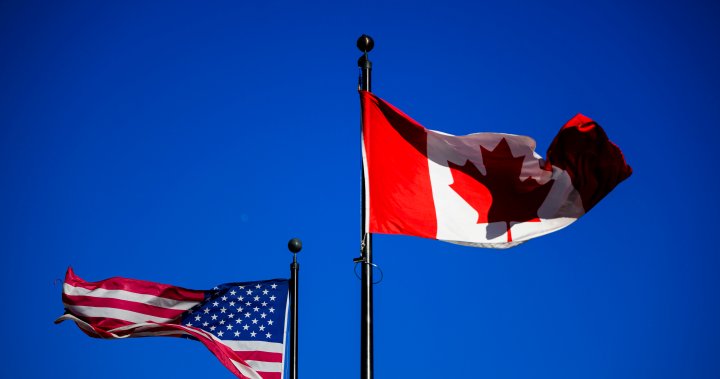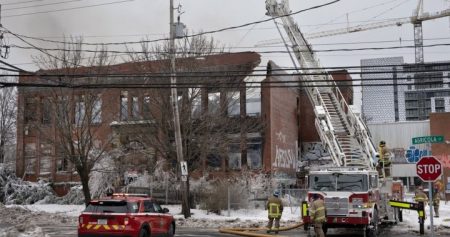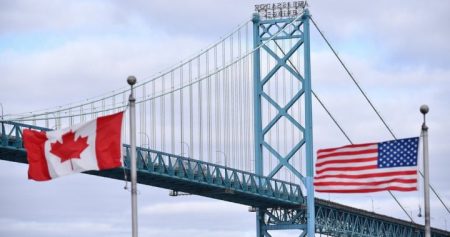Canada Appoints New Fentanyl Czar Amid Border Security Concerns
Introduction to the Appointment
Canada has taken a significant step in addressing the growing concerns over fentanyl trafficking by appointing Kevin Brosseau as its new fentanyl czar. This move comes in response to pressure from U.S. President Donald Trump, who recently threatened to impose tariffs on Canadian imports unless the country took stronger measures to curb the flow of fentanyl and migrants across the border. Brosseau, a seasoned law enforcement veteran with over 20 years of experience with the Royal Canadian Mounted Police (RCMP), will spearhead efforts to detect, disrupt, and dismantle the illicit fentanyl trade. He will work closely with U.S. counterparts and law enforcement agencies to accelerate Canada’s progress in tackling this crisis.
Public Safety Minister David McGuinty emphasized the need for a coordinated approach, stating that Brosseau’s extensive experience and leadership skills make him the ideal candidate to address this issue. McGuinty, who oversees both the Canada Border Services Agency (CBSA) and the RCMP, reiterated the government’s commitment to combating the fentanyl crisis, which has devastated communities across the country.
The Background of Kevin Brosseau
Kevin Brosseau brings a wealth of experience to his new role as fentanyl czar. A native of Bonnyville, Alberta, Brosseau pursued higher education at the University of Alberta, where he earned a law degree, and later at Harvard Law School, where he specialized in corporate law and Indigenous law. His career with the RCMP spanned over two decades, during which he held prominent positions, including deputy commissioner and commanding officer in Manitoba.
In 2019, Brosseau transitioned to a role as senior assistant deputy minister at Transport Canada, further expanding his expertise in public service. In 2022, he was appointed by Prime Minister Justin Trudeau as the associate deputy minister of Fisheries and Oceans. Brosseau’s diverse background in law enforcement, policy, and governance equips him with the skills needed to navigate the complexities of the fentanyl crisis.
The U.S. Perspective and the Role of the Fentanyl Czar
The U.S. has long pointed to Canada as a conduit for illegal fentanyl entering its borders. However, data suggests that only 0.2% of fentanyl seized in the U.S. originates from Canada, with the majority coming from the southern border. Despite this, President Trump has repeatedly used the issue as leverage to pressure Canada into strengthening border security and combating drug trafficking.
The appointment of a fentanyl czar in Canada reflects a strategic effort to address these concerns and maintain a positive relationship with the U.S. Brosseau’s role will involve coordinating efforts across agencies, streamlining operations, and ensuring that Canada’s response to the fentanyl crisis is both swift and effective. While the position of fentanyl czar is not formally defined in law, it signals a commitment to tackling the issue head-on and demonstrates Canada’s willingness to collaborate with its southern neighbor.
The Significance of the "Czar" Title
The term "czar" has a long history in the U.S., dating back to the 20th century. It has been used to describe high-level officials tasked with overseeing critical issues, such as homeland security or homelessness. According to Mitchell Sollenberger, a political science professor at the University of Michigan-Dearborn, the title is often used to attract media attention and create a sense of urgency around a new position. While the role may lack formal powers, it can still wield significant influence by cutting through bureaucratic red tape.
In Canada’s case, the appointment of a fentanyl czar serves as a symbolic gesture, signaling the government’s recognition of the severity of the crisis and its determination to take action. However, experts remain skeptical about the potential impact of this role, as it operates within the existing framework of government agencies and does not supplant the authority of elected officials.
Kevin Brosseau’s Experience and Leadership
Brosseau’s extensive career in law enforcement and public service makes him a strong candidate for the role of fentanyl czar. His experience with the RCMP has equipped him with a deep understanding of the challenges posed by organized crime and drug trafficking. Additionally, his work in federal ministries has given him the administrative expertise needed to coordinate cross-agency efforts.
While Brosseau’s leadership skills and experience are impressive, the success of his tenure as fentanyl czar will depend on his ability to navigate the complexities of intergovernmental cooperation and the bureaucratic landscape. His role will require balancing the priorities of various agencies while maintaining a focus on the overarching goal of reducing fentanyl’s impact on Canadian communities.
Challenges and Skepticism Moving Forward
Despite the optimism surrounding Brosseau’s appointment, there are concerns about the potential limitations of the fentanyl czar role. Scholars like Stephen Schneider, a criminology professor at Saint Mary’s University, note that the position may lack the formal authority needed to drive meaningful policy changes. While the role will involve overseeing and coordinating efforts related to fentanyl, it will not override the responsibilities of existing ministers or agencies.
The effectiveness of the fentanyl czar will also depend on the resources and support provided by the government. Without a clear mandate or additional funding, Brosseau may face challenges in implementing significant reforms. Critics argue that while the appointment is a step in the right direction, it may not be enough to address the systemic issues driving the fentanyl crisis.
In conclusion, the appointment of Kevin Brosseau as Canada’s fentanyl czar represents a proactive response to the challenges posed by the illicit drug trade. While his experience and leadership skills are assets, the success of his tenure will hinge on the government’s willingness to provide the necessary tools and resources to tackle this complex issue. As Canada continues to navigate its relationship with the U.S. and address the ongoing fentanyl crisis, the role of the fentanyl czar will be closely scrutinized for its impact on both policy and outcomes.












